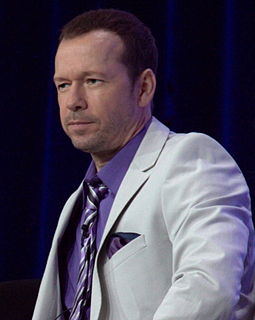A Quote by Warren Buffett
The greater the potential for reward in the value portfolio, the less risk there is.
Related Quotes
One of my guiding principles is don't do anything that other people are doing. Always do something a little different if you can. The concept is that if you do it a little differently there is a greater potential for reward than if you the same thing that other people are doing. I think that this kind of goal for one's work, having obviously the maximum risk, would have the maximum reward no matter what the field may be.
Unlike most of life, what you do really matters. Your actions have real consequences. You have to pay attention and focus, and that's very satisfying. It forces you to pay great attention and you lose yourself in the task at hand. Without the risk, that wouldn't happen, so the risk is an essential part of climbing, and that's hard for some people to grasp. You can't justify the risk when things go wrong and people die. The greater the risk, the greater the reward in most aspects of life, and in climbing that's certainly true, too. It's very physical, you use your mind and your body.
The art of banking is always to balance the risk of a run with the reward of a profit. The tantalizing factor in the equation is that riskier borrowers pay higher interest rates. Ultimate safety - a strongbox full of currency - would avail the banker nothing. Maximum risk - a portfolio of loans to prospective bankrupts at usurious interest rates - would invite disaster. A good banker safely and profitably treads the middle ground.
There is one thing of which I can assure you. If good performance of the fund is even a minor objective, any portfolio encompassing one hundred stocks (whether the manager is handling one thousand dollars or one billion dollars) is not being operated logically. The addition of the one hundredth stock simply can't reduce the potential variance in portfolio performance sufficiently to compensate for the negative effect its inclusion has on the overall portfolio expectation.
The risk of an investment is described by both the probability and the potential amount of loss. The risk of an investment-the probability of an adverse outcome-is partly inherent in its very nature. A dollar spent on biotechnology research is a riskier investment than a dollar used to purchase utility equipment. The former has both a greater probability of loss and a greater percentage of the investment at stake.

































